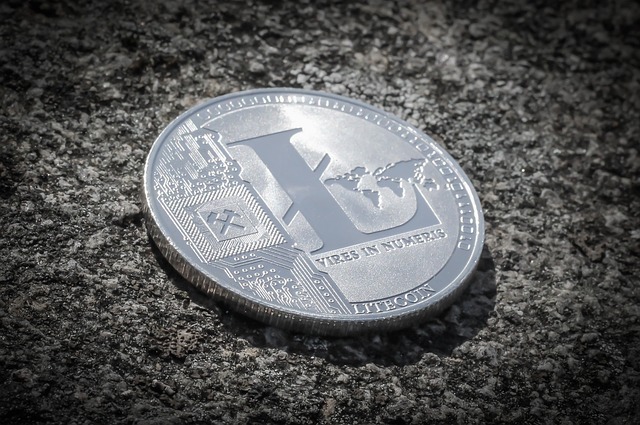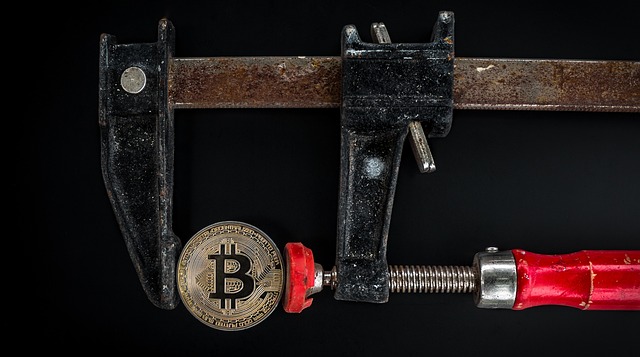The Good and Bad of DeFi: Navigating Pros and Cons
The Good and Bad of DeFi: Navigating Pros and Cons

The Potential of DeFi: Exploring the Upsides and Downsides
The potential of DeFi, or decentralized finance, is vast and promising. It holds the promise of transforming the traditional financial system by providing individuals with greater control over their money and eliminating the need for intermediaries. One of the main upsides of DeFi is its potential for financial inclusion.

However, while the potential benefits of DeFi are substantial, it is crucial to acknowledge the downsides as well. One of the major concerns is the inherent risks associated with decentralized platforms. Unlike centralized financial systems that are regulated and supervised, DeFi operates in a relatively unregulated environment, making it susceptible to scams, hacks, and other security vulnerabilities. Additionally, the lack of intermediaries may also lead to challenges such as limited customer support and dispute resolution mechanisms. So, while DeFi offers immense potential, it is essential to approach it with caution and be aware of the risks involved.
• DeFi has the potential to transform the traditional financial system by giving individuals more control over their money and removing intermediaries.
• Financial inclusion is one of the main advantages of DeFi, as it allows anyone with internet access to participate in financial activities.
• DeFi provides access to services like savings, lending, and investment opportunities for marginalized communities that are often excluded from traditional banking systems.
• However, there are downsides to consider when it comes to DeFi.
• One major concern is the lack of regulation and supervision in decentralized platforms, making them vulnerable to scams, hacks, and security vulnerabilities.
• The absence of intermediaries also means limited customer support and dispute resolution mechanisms in DeFi.
• While there is immense potential in DeFi, caution should be exercised due to these risks.
Benefits of DeFi: Understanding the Positive Impact
DeFi, short for decentralized finance, is revolutionizing traditional financial systems by providing numerous benefits and positive impacts for users. One of the significant advantages of DeFi is its ability to enhance financial inclusion. Unlike traditional banking systems that require extensive documentation and credit scores, DeFi platforms allow anyone with internet access to participate in various financial activities.

Another positive impact of DeFi is its potential to empower users and remove intermediaries. Traditional financial systems often involve multiple intermediaries, such as banks, payment processors, and brokers, which can lead to delays, higher fees, and less control over one’s assets. In contrast, DeFi operates on blockchain technology, allowing for peer-to-peer transactions without the need for a central authority. By cutting out intermediaries, individuals can directly manage their assets, reducing costs, enhancing transparency, and increasing efficiency. This newfound control empowers users to take charge of their finances and make decisions based on their own preferences and risk appetite. Thus, DeFi not only offers convenience but also gives individuals the freedom to assert their financial independence.
Risks of DeFi: Recognizing the Potential Pitfalls
When it comes to the world of decentralized finance (DeFi), there are undoubtedly numerous potential benefits and exciting opportunities. However, it is crucial for users to be aware of the potential pitfalls and risks that come with this innovative and often rapidly changing landscape. While DeFi offers increased accessibility, user empowerment, and financial inclusion, it is not without its challenges.
One of the key risks in DeFi revolves around security concerns. Unlike traditional centralized financial systems, where transactions are typically monitored and regulated by a central authority, DeFi operates on a decentralized model. While this decentralized nature provides transparency and removes intermediaries, it also opens up opportunities for hackers and malicious actors to exploit vulnerabilities and compromise users’ funds. This risk underscores the importance of taking necessary security precautions, such as using robust wallets, platforms with strong security measures, and practicing good cybersecurity hygiene. In the exciting world of DeFi, staying informed and vigilant is essential to safeguarding your assets.
Accessibility in DeFi: Opening Doors for Financial Inclusion
Accessibility in DeFi has emerged as a powerful tool for opening doors to financial inclusion. By leveraging blockchain technology, decentralized finance platforms have the potential to democratize financial services, reaching individuals who were previously excluded from traditional banking systems. The elimination of intermediaries and the ability to transact directly on the blockchain can greatly reduce barriers to entry, enabling anyone with an internet connection to participate in DeFi.
One of the main benefits of accessibility in DeFi is its ability to provide financial services to the unbanked and underbanked populations. In many parts of the world, individuals do not have access to basic financial services such as bank accounts, loans, and investment opportunities. DeFi platforms can bridge this gap, allowing individuals to borrow, lend, and invest their assets without relying on traditional financial institutions. This level of accessibility has the potential to empower individuals, giving them greater control over their financial lives and enabling them to participate in the global economy on their own terms.
Security Concerns in DeFi: Safeguarding Your Assets
When it comes to participating in decentralized finance (DeFi), safeguarding your assets should be a top priority. While DeFi offers exciting opportunities for users to control their finances and engage in various financial activities, it also comes with its fair share of security concerns. As with any digital platform, there are risks involved, such as hacking attempts, scams, and smart contract vulnerabilities.
One of the main areas of concern in DeFi is the potential for smart contract exploits. Smart contracts are computer programs that execute transactions once specific conditions are met. While they offer efficiency and automation, they are also prone to bugs or vulnerabilities, which can be exploited by attackers. Moreover, the decentralized nature of DeFi means that there is no central authority or regulatory oversight, making it even more critical for users to be vigilant and take personal responsibility for their security. Taking preventative measures, such as using reputable platforms and conducting thorough research before investing or participating in DeFi projects, can help in safeguarding your hard-earned assets.
Decentralization in DeFi: Empowering Users and Removing Intermediaries
Decentralization in DeFi is revolutionizing the financial landscape by empowering users and eliminating the need for intermediaries. Traditionally, financial transactions and services have heavily relied on centralized institutions such as banks or payment processors. However, with DeFi, users have the ability to directly interact with smart contracts on blockchain platforms, enabling peer-to-peer transactions without the involvement of middlemen.
One of the primary advantages of decentralization in DeFi is the increased control and ownership it offers to users. By removing intermediaries, individuals have the ability to manage their own finances and data, ensuring transparency and security. This shift puts the power back in the hands of the users, allowing them to make decisions without being subject to the limitations and fees imposed by central authorities. Additionally, decentralization opens up opportunities for financial inclusion, as individuals who may not have had access to traditional banking services can now participate in decentralized finance, leveling the playing field and promoting economic empowerment.
Volatility in DeFi: Navigating the Rollercoaster Ride
Volatility in decentralized finance (DeFi) is a recurring theme that often takes center stage in discussions surrounding this emerging field. As an investor or participant in DeFi, you must be prepared to navigate the rollercoaster ride of price fluctuations and unpredictable market movements. The decentralized nature of DeFi, while offering numerous advantages, also exposes users to increased volatility compared to traditional financial markets.
One of the main factors contributing to volatility in DeFi is the relatively small market size when compared to established financial systems. With a smaller market, even minor changes in investor sentiment or market dynamics can lead to significant price swings. Additionally, the lack of regulatory oversight in DeFi allows for greater speculative activity, which can further exacerbate price volatility. As a result, it is essential for participants in DeFi to develop a strong understanding of market trends and dynamics, as well as implement risk management strategies to navigate the inherent volatility in this space.
Liquidity Challenges in DeFi: Overcoming Obstacles for Growth
One of the key obstacles hindering the growth of DeFi is the issue of liquidity challenges. Liquidity refers to the availability of assets in a market, allowing for easy buying and selling without significant price impact. In the context of decentralized finance, liquidity plays a vital role as it enables users to trade their assets, provide collateral for loans, and participate in various decentralized applications (dApps).
However, the DeFi ecosystem still grapples with liquidity challenges due to its relatively nascent stage and the decentralized nature of the market. Unlike traditional financial markets, DeFi lacks the presence of centralized intermediaries, such as banks or exchanges, that can provide liquidity and ensure smooth market operations. As a result, liquidity in DeFi largely depends on individual users who provide their assets to lending/borrowing platforms or liquidity pools. This reliance on user participation can lead to fluctuations in liquidity levels, making it imperative for the ecosystem to find effective ways to overcome these challenges in order to facilitate its growth and maturity.
Regulatory Landscape of DeFi: Adapting to Evolving Laws
In the rapidly evolving landscape of decentralized finance (DeFi), adapting to the ever-changing regulatory landscape has become a paramount concern. Governments around the world are still grappling with how to regulate this new frontier, resulting in a patchwork of different approaches. This lack of uniformity often creates uncertainty for both developers and users, making it difficult to navigate the legal landscape and comply with various regulatory requirements. As a result, projects in the DeFi space must stay vigilant and adaptable, constantly monitoring and complying with new laws as they emerge.
One of the main challenges in the regulatory landscape of DeFi is the struggle to strike a balance between fostering innovation and protecting investors and consumers. While regulations are put in place to safeguard against potential risks and fraudulent activities, excessively burdensome regulations could stifle growth and innovation. Policymakers and regulators are faced with the challenge of fostering an environment that encourages responsible innovation while also providing adequate protection for participants in the DeFi ecosystem. As the industry continues to mature, it is of utmost importance for regulators to engage in open dialogue with industry participants to ensure that regulations are effective, fair, and adaptable to the unique characteristics of decentralized finance.
User Education in DeFi: Equipping Yourself with Knowledge
Decentralized Finance (DeFi) has emerged as a game-changer in the financial landscape, offering individuals more control and freedom over their money. However, navigating the world of DeFi can be daunting, especially for newcomers. That’s where user education steps in. Equipping yourself with knowledge is essential to making informed decisions and maximizing the benefits of DeFi.
The first step in your educational journey is understanding the basics of DeFi. Start by grasping the concept of decentralized platforms and how they leverage blockchain technology to provide financial services without the need for intermediaries.

What is DeFi?
DeFi stands for Decentralized Finance. It refers to a system that allows individuals to access financial services and products without relying on intermediaries like banks.
What are the potential benefits of DeFi?
DeFi offers several benefits, including greater financial inclusion, increased accessibility to financial services, lower fees, and the ability to have more control over your assets.
Are there any risks involved in DeFi?
Yes, there are risks involved in DeFi. Some of the potential pitfalls include smart contract vulnerabilities, hacks, scams, and regulatory uncertainty. It’s important to be aware of these risks and take necessary precautions.
How does DeFi promote financial inclusion?
DeFi opens doors for those who are unbanked or underbanked, allowing them to access financial services and participate in the global economy.
How can I safeguard my assets in DeFi?
To safeguard your assets, it’s important to use secure wallets, enable two-factor authentication, conduct thorough research before investing, and stay updated on security best practices.
What is the significance of decentralization in DeFi?
Decentralization in DeFi empowers users by removing the need for intermediaries, giving individuals more control over their finances and reducing the risk of censorship or manipulation.
How can I navigate the volatility in DeFi?
Volatility is inherent in DeFi due to the nature of cryptocurrencies. To navigate the rollercoaster ride, it’s important to do thorough research, diversify your investments, and only invest what you can afford to lose.
What are the liquidity challenges in DeFi?
Liquidity challenges in DeFi arise due to the fragmented nature of the market. Overcoming these obstacles requires the development of robust liquidity solutions and increased interoperability between different DeFi platforms.
How is the regulatory landscape of DeFi evolving?
The regulatory landscape of DeFi is still evolving, and different countries have varying approaches. It’s important to stay informed about the legal and regulatory requirements in your jurisdiction to ensure compliance.
Why is user education important in DeFi?
User education is crucial in DeFi to equip individuals with the necessary knowledge to make informed decisions, understand the risks involved, and navigate the complex world of decentralized finance.
Todays Featured Product:
Buy, exchange and grow your crypto securely with a Ledger hardware wallet, combined with the Ledger Live app. It’s never been easier to keep your crypto safe and accessible. Buy direct from Ledger.com and get todays Special Offers Here.




